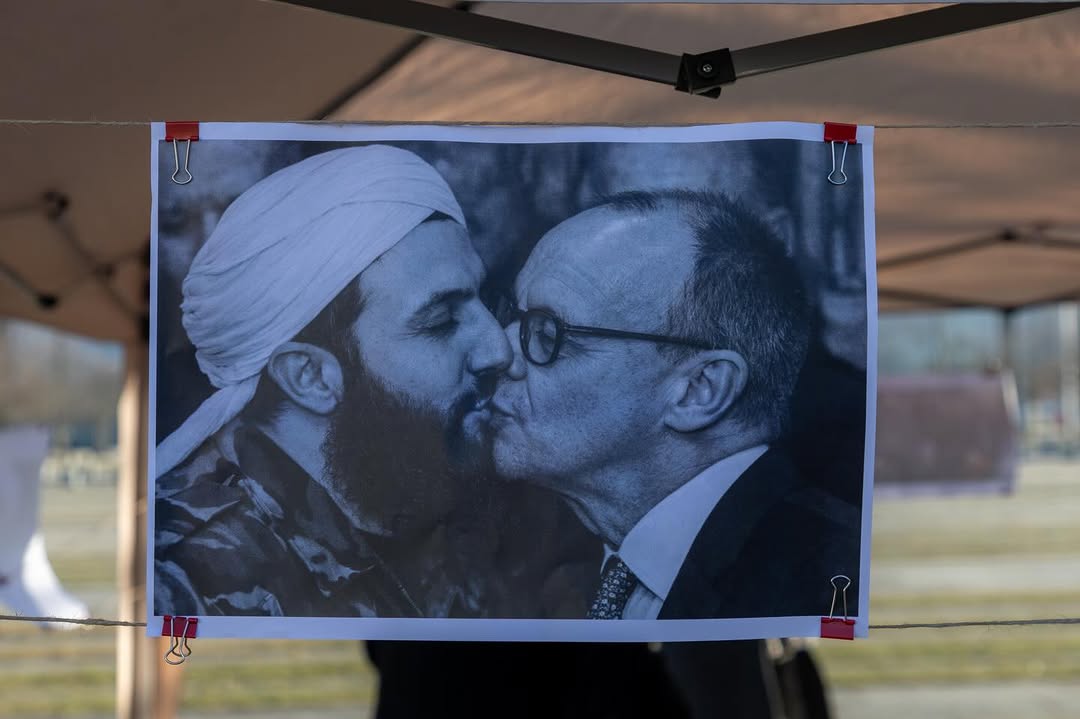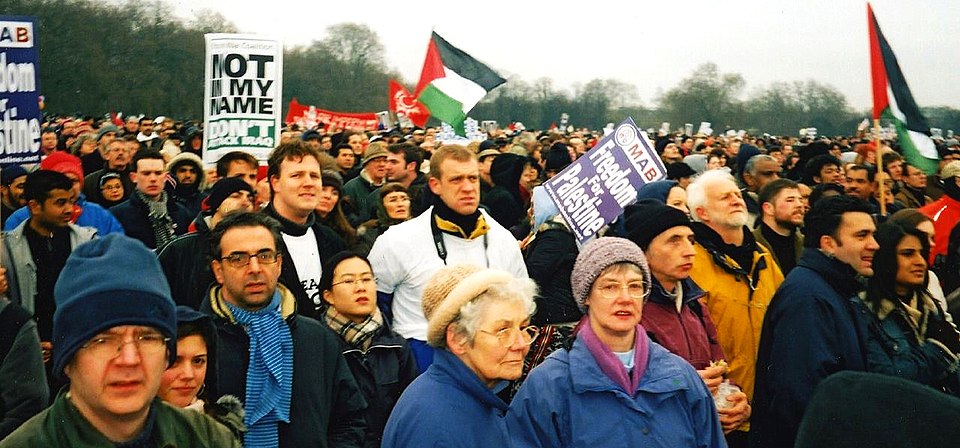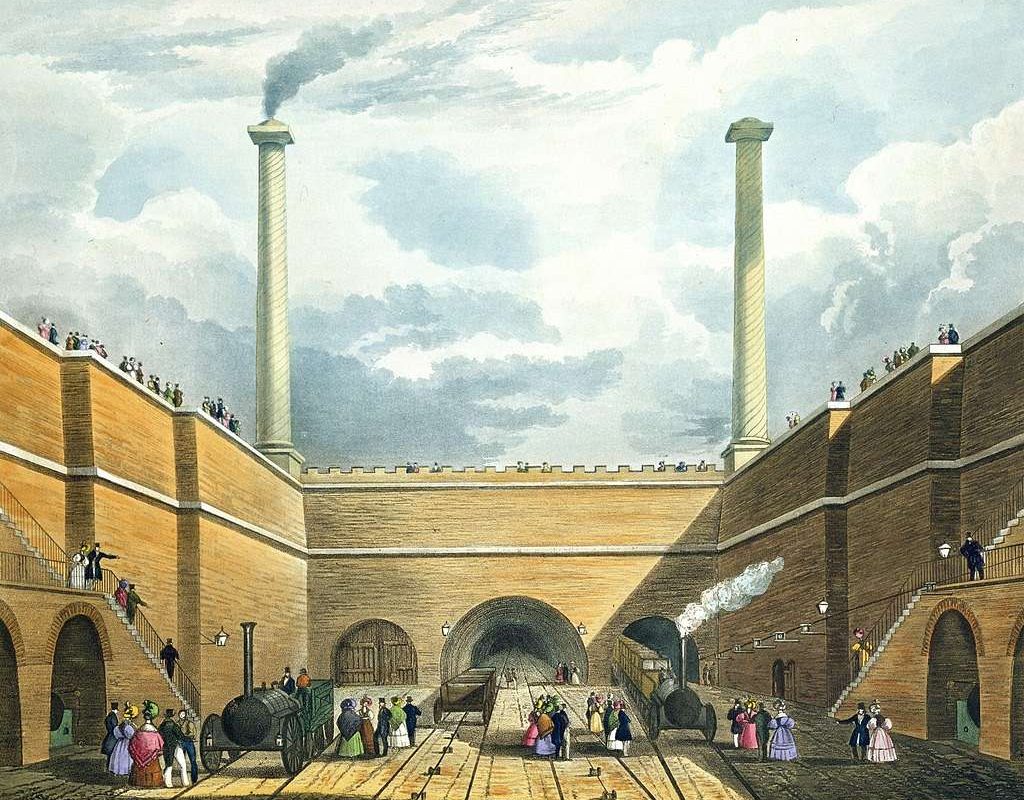Last month, I wrote an article about the difficult arguments with which we have been confronted regarding Putin’s invasion of Ukraine. The original text contained a significant section about disputes inside the British Labour Party. In the end, I cut that section, as the article was already overlong and mainly concerned with something else. But recent developments have shown that this discussion has not gone away.
Below is the text that I wrote then, followed by a little more information to bring the debate up to date. In particular, I want to look at just how far Labour has fallen since the heady days of Jeremy Corbyn, and why the current party leadership sees the anti-war movement as a threat. Finally, I will suggest what this means for the international Left.
One month ago
At the beginning of March, I wrote the following:
Meanwhile, Britain’s new model Labour Party is doing its best to quash any anti-imperialist opposition to war. To understand what is happening, it is worth looking at the chronology of what has happened. On 10th February, Starmer used the pages of the Guardian, the paper which most actively tried to sabotage Jeremy Corbyn, to publish an article “Under my leadership, Labour’s commitment to NATO is unshakeable”.
In the article, Starmer attacked Britain’s most significant anti-war group, the Stop the War Coalition (StWC): “At best they are naive; at worst they actively give succour to authoritarian leaders who directly threaten democracies. There is nothing progressive in showing solidarity with the aggressor when our allies need our solidarity and – crucially – our practical assistance, now more than ever.”
This succour that StWC had offered Putin included a statement whose opening paragraph read “Stop the War opposes any war over Ukraine, and believes the crisis should be settled on a basis which recognises the right of the Ukrainian people to self-determination and addresses Russia’s security concerns.” Earlier statements like this one also clearly attacked the Putin régime.
11 Labour MPs signed this statement, but then withdrew their support after Starmer threatened to withdraw the parliamentary privileges you get for being a Labour MP. On 2nd March, 2 of the 11, John McDonnell and Diane Abbott withdrew from speaking at an anti-war meeting. McDonnell explained his decision by saying, “People are dying on the streets of Ukrainian cities. This is not the time to be distracted by political arguments.”
On the same day, environmentalist George Monbiot, also in the Guardian, accused StWC and the anti-war left of being “among the worst disseminators of Kremlin propaganda”, and being “strangely unbalanced.” Monbiot went on to argue that “NATO expansion has also been driven in part by Putin’s belligerence.” The article was shared by some good anti-imperialists, particularly those who were rightly disappointed by StWC’s prevarication over Syria.
Now I’m not sure if Monbiot is a former anti-imperialist turned NATO stooge, like Paul Mason, or someone whose concerns are more honest. Either way, he is being played as a useful idiot by the Labour leadership and its house journal, who are trying to prove themselves responsible managers of capitalism by cracking down on any opposition to war.
Bringing it up to date – the purge continues
Much has happened since, but I would like to concentrate on two incidents.
On 29th March, Labour proscribed three organisations – Labour Left Alliance, Socialist Labour Network, and the Alliance for Workers’ Liberty (AWL) . This followed an earlier proscription of four organisations last July. Labour members, including a local Councillor, were suspended from the party for liking Facebook posts made by the organisations. The posts were liked before the organisations had been proscribed.
The proscription of the AWL was particularly ironic, as they had been loyal supporters of Starmer’s witch hunt. In February 2019, they issued a statement by leading theoretician Sean Matgamna, arguing that certain opposition to Israel should be “incompatible with membership of the Labour Party”. As examples, he listed using terms like “right of return” and “from the river to the sea”.
Let’s be clear about what this means. At a time when thousands of socialists, many of them Jewish, were being expelled from the Labour Party, the AWL called for throwing people out of the party because they argued for refugee rights or said that the whole of Palestine from the Mediterranean to the River Jordan should be free (which part of Palestine did they think should not be free?). Nonetheless, refusing to vocally oppose the expulsion misses the larger picture. Starmer is banning organisations, not because of their political positions, but because he can. With every unopposed ban, the likelihood increases that more will follow.
Sensing blood, Daily Telegraph journalist Tom Harris called on Starmer to expel people for supporting StWC, which organised the country’s largest post-war demonstration. Starmer has already said that Labour MPs who attack NATO will be expelled. On 11th April, while I was writing this article, the Guardian announced that Corbyn would not have the Labour Whip restored if he continued to support StWC.
When asked about whether he supports left wing MPs on radio 4, Starmer dodged the question, but did say that “all of our MPs will go through a process for selection into the next election”. I don’t think we need doubt whose de-selection Starmer would welcome, especially as the BBC has already reported plans to get rid of the outspoken socialist MP Zarah Sultana before the election.
How has the Left responded to the witch hunt?
To fight a threat you have to recognise its nature, and many prominent figures associated with the Left of the party do not have a good record here. In April 2020, Owen Jones wrote an article entitled Starmer can succeed, and he deserves our support, in which he said that “Now is the time for critical friendship” with Starmer, who, Jones argued, “has committed to the policies long advocated by the left”.
In January of the same year, Paul Mason, who is rapidly emerging as a B-52 liberal tweeted: “Starmer will not purge the left, and he won’t allow others to purge the left.” In his defence, Mason has issued one tweet which opposes the latest bans, but his main contribution has been to help create the atmosphere which made such bans possible.
Even the far Left’s response to the current purge has been weak-willed at best. After she was forced to withdraw her support for the StWC statement, MP Diane Abbott was asked about being expelled. She said, “I’m a loyal supporter of Keir Starmer and it will never come to that.” Abbott continued, “Everybody in the Labour Party supports a defensive alliance,” neglecting to mention that NATO is anything but a defensive alliance.
Momentum’s response to the expulsions was to send a message to members saying “Members are advised to immediately review their social media history and unlike / unshare / uncomment where appropriate. Please pass on this advice to relevant comrades ASAP”.
It is tragic that an organisation that, according to Jacobin, “quickly developed into one of the most important institutions on the British left” has so quickly declined. Very recently, Momentum argued that Labour members should Stay and Fight (while showing more inclination to stay than to fight). Last December, their website published an article by Jeremy Gilbert suggesting that this strategy should be amended to “Stay and Sulk”.
Gilbert argued “By all means, withdraw from active party work if it is proving nothing but a source of frustration. But don’t give up your party card: that’s exactly what they’re trying to get you to do.” The current Momentum strategy is the logical conclusion of this passivity, as the former hope of the international left is now effectively complying with the witch hunt by urging its base to refrain from resisting.
It is one thing for ordinary Labour members to feel so isolated that they are unable to stick up to the bullies in the party leadership, but when the leading figures and organisations of the party Left abdicate from any sort of resistance, one must ask exactly why they are paying their subs to a party whose structures clearly despise them.
Labour embraces NATO
One day after the proscriptions, Labour attacked the Conservative government from the right, calling for “’a post 9/11’ style increase in defence spending”. Labour’s defence spokesperson John Healey argued that the UK needed to “honour our NATO obligations in Europe,” reminding us that after 9/11, it was a Labour government which made “the largest sustained increase in defence spending for two decades.”
This has worrying parallels to Germany, where new Social Democrat Chancellor Olaf Scholz announced an extra €100 billion to the German defence budget, promising to increase military spending so that it will exceed 2% of the GNP. People who ask how the German Social Democrats could vote for war credits in 1914 despite having consistently opposed them are now watching history repeat itself.
If this were simply a matter of internal Labour Party democracy it would be scandalous, but of relatively little importance to those of us who are not directly affected. But it is about much more than this. In Jacobin, Oliver Eagleton argues that the dominant features of Starmer’s leadership are “a return to Blairite foreign policy combined with a relentless assault on the Left.” It is important to recognise that these two policies are linked.
The army is one of the most important instruments for defending a capitalist state. On the one hand, it is used to violently defend the state’s interests abroad. On the other, troops can be used to put down protests or run scabbing organisations to break strikes. This is why the claims by people like Paul Mason that the British army and NATO somehow could be a benevolent force are so dangerous.
During the last election campaign, British soldiers in Kabul were shown to have used pictures of Jeremy Corbyn as target practise. A serving general warned that the British army was prepared to stage a military coup against a Corbyn government. Just as British and US-American forces have been used to enforce régime change in other countries, they could ultimately be used at home. The State is not neutral.
Tony Blair’s neoliberal government required Labour to embrace the British state to the extent that it followed George Bush into an illegal war. Keir Starmer is trying to repeat this strategy, and indeed has promoted Blair’s key strategist Peter Mandelson.This has nothing to do with building a socialist alternative to Boris Johnson’s Tories.
Lessons for the International Left
Ten years ago, the international Left was much more hopeful. We had just experienced Occupy Wall Street, the Occupation of the Squares in Spain and the Arab Spring. The Left, quite correctly, decided that it cannot survive on social movements alone and needed to also engage in electoral politics, thus Occupy Wall Street begat Bernie Sanders, the Occupation of the Square begat Podemos, and we saw other welcome developments like SYRIZA and Corbyn’s Labour.
The logic of this decision was that while social movements may be fleeting and engage a relatively small number of people, elections provide a short period of intensified politics. A Russian socialist who I recently interviewed made the same argument. When millions of people are talking about politics, it is important for the Left to be part of this discussion.
The problem was that the stick was bent too far. Rather than using elections as a platform for forwarding left-wing ideas, some used a predicted loss of electoral support to hold back the movement. Old reactionaries like Tony Blair were resuscitated so that they can argue that Corbyn’s politics made Labour unelectable, saying that any change depended on a Labour government, however bad.
This depended on a static view of politics that believes that people always and inevitably hold one set of ideas in their heads and that politicians – even socialist politicians – must pander to these ideas, however reactionary. Yet the early years of this Century paint a very different picture. The Corbyn movement would not have been possible without the mass mobilisation by StWC (of whom, by the way, Corbyn was chair) or the Arab Spring which changed people’s confidence in their ability to change society.
The Iraq war saw the rise of a mass movement which involved millions. In February 2003, Patrick Tyler wrote in the New York Times, “the huge anti-war demonstrations around the world this weekend are reminders that there may still be two superpowers on the planet: the United States and world public opinion”.
This, in part, is what Keir Starmer is afraid of, and is the main reason for his assault on inner party democracy. We need to rebuild a mass anti-war movement, which is also clear about the faults of “our” imperialists, be it in Iraq, Palestine or Yemen. This is not just because the world needs peace. It is also because building mass movements gives our side the self-confidence to implement change where it is most effective – from below.




